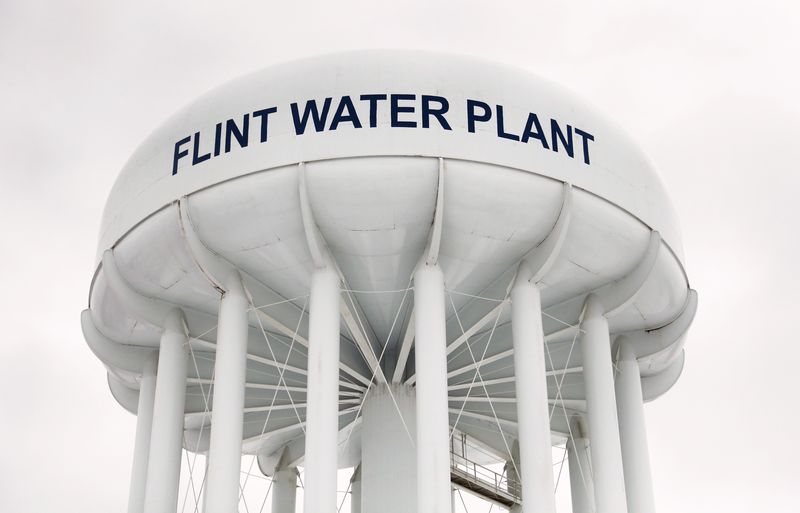By Mary Wisniewski
(Reuters) - Michigan Governor Rick Snyder on Wednesday appointed a group of government officials, health and other experts to implement long-term fixes for Flint's lead-contaminated water system, which has become a national scandal.
The 17-member committee would recommend ways to help people exposed to lead, study Flint's water infrastructure and determine possible upgrades. The members includes Flint Mayor Karen Weaver and county and state officials.
Snyder, a Republican, also said he wanted the Medicaid social health care program to be expanded to cover all Flint children. In an interview airing on CNN Wednesday evening, Snyder said that officials expect a higher tally of children affected than blood tests have shown so far.
"There could be many more," Snyder said. "And we're assuming that."
Democrats in the U.S. Senate were preparing to unveil legislation as early as Thursday aimed at aiding Flint, but would not provide details. It could be debated on the Senate floor next week as part of an unrelated energy bill, aides said.
Activists in Flint plan to present petitions with almost 20,000 signatures to Weaver and Snyder on Thursday calling for a moratorium on water bills.
Snyder's team includes two people who helped focus attention on the water crisis - Flint pediatrician Dr. Mona Hanna-Attisha and Marc Edwards, a civil engineering professor at Virginia Tech who would oversee all state and federal water testing.
Snyder is asking for $3 million in state funds for water bills.
"Flint residents should not have to pay for water they did not and are not using," Weaver said.
Also on Wednesday, a coalition of Flint residents and national groups filed a lawsuit asking a Detroit federal court to compel city and state officials to replace all lead water pipes promptly and at no cost to residents.
The National Resources Defense Council, the American Civil Liberties Union of Michigan and Flint residents asked for relief for any medical harm suffered. Lead is a neurotoxin that can damage the brain and cause other health problems.
Snyder has repeatedly apologized for the delay in addressing Flint's problems, which have led some critics to call for his censure or arrest. Residents of the city of 100,000 people had complained for months about elevated readings of lead in drinking water and the blood of some children.

Michigan Attorney General Bill Schuette named a special prosecutor to look into possible crimes in the crisis.